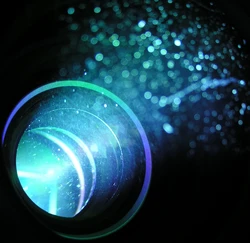I don’t watch horror slasher/spatter films because it’s never really interested me, but I found the Weapons trailer intriguing. The way all those kids ran away from their homes in the middle of the night. There was some pretty great cinematography and choreography in this film. I was there mainly the mystery solving and fantastical elements.
Unfortunately, the supernatural element wasn’t explained. It borrowed from familiar witchcraft tropes, but didn’t go anywhere. So many questions. Then it became… gruesome. Exceedingly so. (And yes, I know it was more mild than other films.)
Anyway. I’m just lost. What draws people to these kinds of gruesome films? If it’s something you love, what excites you about it? I feel as though great stories can be told really well without being this explicit. But perhaps great storytelling isn’t what people are looking for in horror films?
Perhaps it is the fear and suspense it brings out of you? Or maybe the squeamishness of not being able to look at the screen at times? Maybe some people look forward to the gore, which adds value the more gruesome it is? 😬
I feel like I am not getting something. I love fantasy. I love stories. I feel like there was a lot of great potential in this film for storytelling, but it never came to fruition and was kind of ruined by focusing on the wrong things. And that’s probably because I don’t understand what makes a good horror film good in the first place?
Thoughts?
Update: Some comments helped me refine what it was that bothers me. I had to look it up and the Wikipedia article helped a lot by breaking horror down into subgenres. It’s “slashers” that I don’t understand, but particularly “splatter” films. When I look at lists, it turns out that I enjoy a lot of “horror” without realizing it’s classified as horror. But gorey, body mutilation… that is the form of horror that I struggle to understand the appeal of.
Weapons employs mutilation at the end and I was wondering why I needed to see this. The filmmakers added it because they wanted me to experience it. They thought it added to their film, but my experience was the opposite. I thought the story was doing great on its own and then… ugh… wtf… who wants to see this? 😅
So this is what I was really asking: For those that enjoy and seek out gorey mutilation, what is it that attracts you to that?


I haven’t seen Weapons, but I do like a horror movie.
Horror is a very diverse genre. Pretty much any story could become a horror story by adding a little twist to it. You’ve got stories that lean into the tropes, stories that actively subvert them, and stories that go their own way.
As far as genres and audiences go, horror is really divisive. People who like it like it, and the people who don’t really do not. In the movie industry, it’s considered high risk, so you typically won’t see horror movies as a major budget summer blockbuster. Traditionally, you’re looking at low budget movies taking chances on new actors / directors / writers. In horror, studios would prefer not to invest in one major picture, but instead diversify into ten pictures and hope one of them is a hit.
Because of studios’ aversion to horror, it has a thriving indie scene. You’re way more likely to see underrepresented voices in horror here, particularly women and queer directors. With limited studio involvement, these stories feel far more personal. And in an industry that relies on thrills, a personal story from an underrepresented voice is more novel. It’ll be more authentic and connect with certain audiences, while other audiences might find it more subversive and unsettling.
It sounds like you were a bit disappointed that Weapons never fully explained itself. While it can be sometimes frustrating, this is a common technique in horror fiction. Stephen King wrote about this extensively in his horror how-to Danse Macabre, but the conventional wisdom is that if you leave certain elements blank, the audience will fill in the blanks themselves and they’ll be scarier than whatever the author originally had in mind. Particularly in arthouse/auteur cinema and thrillers, these blanks also leave room for the audience to make their own interpretations about the meaning of a film - and finding meaning is something that I’m particularly drawn to in film.
I think at their root, people watch horror movies either because they want to be scared or they want to be comforted. These motivations are at odds with each other, and yet, they make sense to me.
For the people who want to be scared, the movie provides a build-up and subsequent release of tension. The tension comes with adrenaline, anticipation, and focus, and the release comes with thrills, relief, and probably give you something to laugh or at least talk about later. It’s a lot like riding a roller coaster. Plus if you’re focused on the horror of the film in front of you, it can provide escapism from the all too real horror show of life.
Then there’s the people who want to be comforted by these movies, and I’m in this camp now. If you’ve seen a thousand horror movies, you probably know how the next one is going to go. You might still jump at the scares, but you know when they’re coming. You may not guess every twist, but you know where they belong. Even the subversive movies become formulaic because the director needs to know the audience’s expectations in order to surprise them. Watching a new movie you can see the influence of the rest of the genre, and if you choose an old familiar movie you can find new details while still enjoying the expected story beats.
I don’t like every horror movie. I know what I like, but the trouble is you don’t always know going into a movie what to expect. Not knowing what to expect is arguably a good thing when you’re selling fear, after all the fear of the unknown is one of the more primal fears. Still, I think more robust content warnings would be useful.
For instance, you mention gruesomeness as being a particular turn-off for you. When you’re deciding to watch a movie, you’ll probably see that it has a letter rating and some kind of content advisory. I’m most familiar with the Motion Picture Association (MPA) ratings, like PG-13 or R, and they’ll include a descriptor of why a movie received a particular rating. The problem for me is that byline often falls short of describing the tone. You might read “Intense blood and gore,” but whether you’re watching Friday the 13th, Tucker and Dale vs Evil, Saw, or The Fly (1983), that gore is probably going to give a different impression because those movies all have radically different tones from each other. In a similar vein, I think of Event Horizon, which is relatively tame apart from something like thirty seconds of psychosexual torture porn that would make De Sade blush.
My personal bugbear are jumpscares, and I wish they were called out in the ratings. They’re a very common complaint among horror fans. They do serve a purpose, but are largely cheap and overused. The “jump” is really an involuntary reaction, and it will occur whether you expect it or not. I suspect they’re only as popular as they are because studios do test screenings where they film audience reactions. A jump is a very visible reaction, but it’s a poor indicator of what the audience is thinking. I imagine that the people reviewing the reactions read them as “very scary film,” but my reaction often has me feeling vaguely insulted.
I also like horror games, and jumpscares are overused there too. You can’t escape it.
Goodness. It was hard to find the rating for this film. I finally found a site that listed it from the US American MPA. This film is “Rated R for strong bloody violence and grisly images”. It will take me some time to get a feel for how a description like this actually compares to the movie. Time to squish my brain. I want to recall various violent and gory films that I’ve seen and then see how they compare to this description.
Update. This is actually much more helpful than I realized. I kind of wish the services I use more plainly listed ratings like these.
Thanks for this. It was insightful.
Your post helped remind me how diverse horror really is. I look it up and the Wikipedia article helped a lot by breaking horror down into subgenres. It’s “slashers” that I don’t understand, but particularly “splatter” films. When I look at lists, it turns out that I enjoy a lot of “horror” without realizing it’s classified as horror. But gorey, body mutilation… that is the form of horror that I struggle to understand the appeal.
Weapons employs mutilation at the end and I was wondering why I needed to see this. The filmmakers added because they wanted me to experience it. They thought it added to their film, but my experience was the opposite. I thought the story was doing great on its own and then… ugh… wtf… who wants to see this?
So for those that enjoy and seek out gorey mutilation, what is it that attracts you to that?
And yes, I also wanted to know more about the story and lore of Weapons. That little tree. The magic. It was all interesting, but I realize now that none of that was really what the film was about. It was just a mechanism enabling what they were trying to accomplish elsewhere.
And also yes, I completely get your sentiment when it comes to jump scares.
Ooh… And on ratings… I realize now how I don’t really pay attention to them like I once did with the advent of streaming. I need to be more intentional about that. It was easier when it was written clearly on a physical box at the movie store.